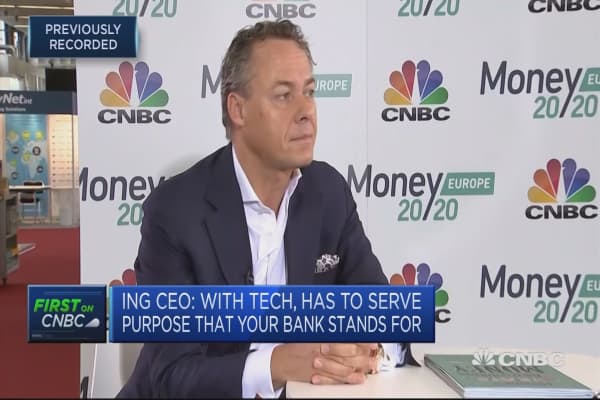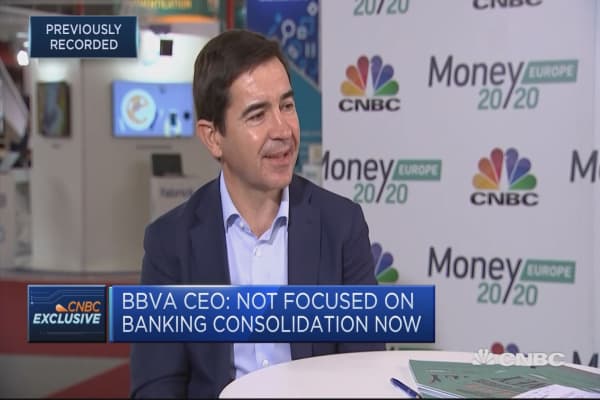- Most people are familiar with blockchain technology in relation to bitcoin and other cryptocurrencies
- The two are inextricably linked in the minds of everyday people. It’s fair to say that the bitcoin market has flourished in recent years, with the price of bitcoin peaking at nearly US$20,000 in December 2017.
By Ben Beard
However, cryptocurrency is a volatile commodity as the recent US$17 billion market collapse illustrates all too well. The cryptocurrency market had seemed more stable in recent months, but it was the calm before the storm, and the hack of South Korea’s biggest cryptocurrency exchange triggered a huge market decline as investors sought to offload their crypto assets.
Bitcoin and other cryptocurrencies notwithstanding, blockchain is, nevertheless, an exciting technology. It has the power to change the world as we know it, in many exciting areas.
Distributed ledger technology is poised to change the world. Blockchain, as it’s better known, is being rolled out over numerous industries. Blockchain technology is scalable. It can be used to create a worldwide ledger, with data stored on thousands of servers. This information is accessible to everyone, in real-time. The blockchain is virtually incorruptible. Every single transaction is given a timestamp that can’t be altered. It’s already having an impact on industries where efficiency matters the most.
The following three sectors are where blockchain is already having a major ripple effect.
Logistics
Blockchain technology is changing the face of modern logistics. Fifty years ago, very few businesses traded on a global scale. Today, international trade is not just for Fortune 500 businesses. It’s now easier than ever to unlock your business’s global potential thanks to cloud technology, innovative fintech, and e-commerce solutions. Amazon (NASDAQ:AMZN) now has 340 million online buyers in Europe alone. It’s clear that trading online is more profitable than ever, but no matter what niche you are in, you have to take care of your bottom line.
This is where blockchain comes in. Blockchain makes the logistics of transporting goods from A to B more efficient. Existing technology can already track shipments, but this data is vulnerable to misinterpretation and tampering. Blockchain applications solve the problem of authenticity, adding a layer of accountability and trust to global logistics. Companies save money and customers enjoy a better service. It’s a win-win for everyone.
Healthcare
Healthcare is already benefitting from blockchain technology, especially in pharma and biotech, but it has the potential to do so much more. Healthcare generates a huge amount of data. There are approximately 325 million US citizens with medical records. Then we have medical research, assorted information, and a host of other data. It’s hard to keep track of all this data, so the system has become incredibly cluttered over the years.
Blockchain is changing the face of modern healthcare, by offering a safe and secure third-party mechanism for storing data. 86.9% of physicians now use electronic medical records, but the system is still fragmented, and mistakes cost lives. Blockchain has the potential to unify the EMR system, making data more accessible and easier to track across different platforms. The blockchain is also a solution to the problem of reconciliation and fraud within a bloated healthcare system. It’s impossible to alter data in the blockchain, which in the long-term, should save money and improve patient care.
Finance
Finance is probably the best-known application for blockchain technology since most people associate it with cryptocurrencies such as Bitcoin and Ethereum. However, bitcoin and blockchain are not the same thing. Bitcoin transactions are stored on the distributed ledger, but bitcoin blockchain is different to that used in other applications. However, whilst Bitcoin is still viewed with suspicion by governments and financial institutions, the underlying blockchain technology is being adapted to revolutionize the banking sector.
In 2016, Goldman Sachs estimated that blockchain technology could potentially save them $6 billion a year by 2020, by eliminating additional costs. They also predicted that blockchain would reduce the number of errors and fraudulent transactions, thus saving even more money.
Banks traditionally use secure databases for transactions. Banks need to establish a secure connection to send and receive money, which is time-consuming and expensive. Blockchain technology allows transactions to happen instantly, regardless of the location. Global payments are cleared within seconds, instead of days. IBM (NYSE:IBM) is already working in blockchain global payment solutions, so it’s only a matter of time before global currency transactions move on to the blockchain.
Blockchain technology is still in its infancy, so we have yet to see what distributed ledger tech is truly capable of.
Don’t forget to follow us @INN_Technology for real-time news updates!
Securities Disclosure: I, Ben Beard, hold no direct investment interest in any company mentioned in this article.
Editorial Disclosure: The Investing News Network does not guarantee the accuracy or thoroughness of the information reported in contributed article. The opinions expressed in these interviews do not reflect the opinions of the Investing News Network and do not constitute investment advice. All readers are encouraged to perform their own due diligence.
Source: https://investingnews.com/daily/tech-investing/blockchain-investing/blockchain-already-delivering-real-world-results/




 Image: Google Search Trends
Image: Google Search Trends Image: Satoshi NakamotoDigital currency is attractive to some because the coins are algorithmically dispensed and not controlled by a government. In the latter half of 2017 and first half of 2018 initial coin offerings — ICOs —
Image: Satoshi NakamotoDigital currency is attractive to some because the coins are algorithmically dispensed and not controlled by a government. In the latter half of 2017 and first half of 2018 initial coin offerings — ICOs — 
/https%3A%2F%2Fblueprint-api-production.s3.amazonaws.com%2Fuploads%2Fcard%2Fimage%2F774360%2F9bd0342b-7c64-4501-8da0-3cafdc90b622.jpg)
